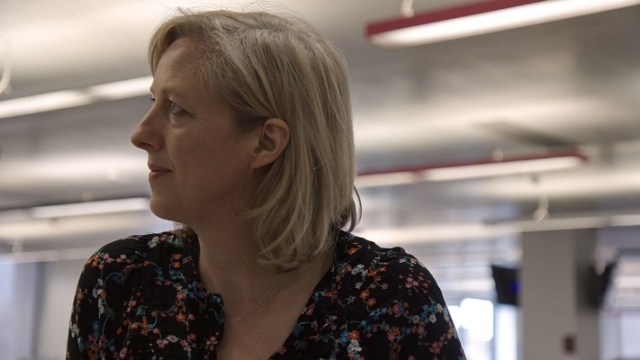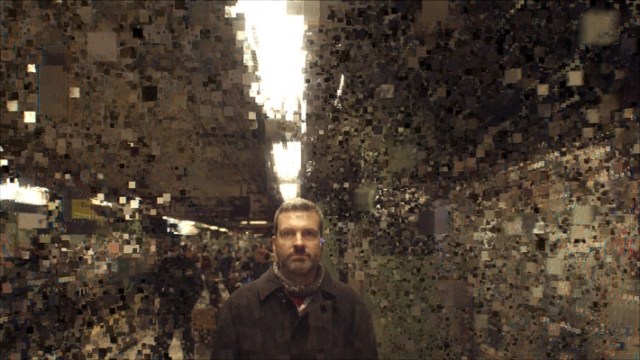
Netflix documentary film “The Great Hack” gives us a closer look into a frightening social change driven by the swift advance of digital technology in our time. Sure, I have been well aware of how seriously most of us have been exposed to possible personal data exploitation by Facebook and many other social network service applications these days, but the documentary made me a lot more concerned about our personal data rights, and I am now seriously considering limiting my utilization of Twitter and a few other social network service applications more than before.
The narrative of the documentary mainly revolves around Cambridge Analytica, a British political consulting firm which became defunct in 2018 shortly after a big public scandal associated with the surprising outcome of the Brexit referendum in 2016. Based on billions of personal data points gathered via Facebook and other social network service application companies, this company strategically targeted thousands of potential voters who could be persuaded to vote for the Leave campaign, and it also turned out that the company later played a crucial role in the shocking victory of Donald J. Trump in the 2016 US presidential election.
At the beginning, David Carroll, an associate professor at Parsons School of Design in New York City, tells us how vulnerable we are to the data mining of Facebook and many other digital technology companies. Once we click yes to a Terms and Conditions agreement when we are about to install an application on our smartphone, we are bound to give our personal data points everyday to a company behind the application, and, unfortunately, there is no way to prevent ourselves from doing that because, well, most of us frequently use various applications on our smartphones everyday. In fact, I used Twitter and Instagram this morning as usual, and I am sure that my several digital activities during that short period are going through some data processing and analysis somewhere.

Around the time when Carroll filed a lawsuit against Cambridge Analytica in England, the company had drawn the attention of British journalist Carole Cadwalladr, and she later published an article on the disconcerting connection between the company and the Leave Campaign, but then she found herself bullied a lot by the supporters of the Leave Campaign. At one point, we see a video clip ridiculing her serious concern on Cambridge Analytica, and that is just one of many cruel attacks and ridicules she had to endure.
Meanwhile, we also get to know about Brittany Kaiser, who was once a key employee of Cambridge Analytica and is probably the most fascinating figure in the documentary. She initially began her career as an intern working in Barack Obama’s US Presidential campaign in 2008, but, after she started to work in Cambridge Analytica, she soon came to be associated with the Leave Campaign as well as Trump’s US presidential campaign in 2016, and she surely did her best under her boss Alexander Nix, the CEO of Cambridge Analytica.
Around the time when Nix and his company were under the investigation by the British government, Kaiser boldly acted as a whistleblower, so she subsequently finds herself being a key witness to testify in public, but, while having some private time somewhere in Thailand, she often becomes unsure about herself. After all, she knew quite well what she and others in Cambridge Analytica were doing during that time, and there are a few moments of personal reflection as she phlegmatically muses on how she let herself get involved with Nix and his company from the beginning.

And we get a bigger picture of what Cambridge Analytica did around the world before it got its two biggest hits in 2016. The company already operated on a number of important national elections around the world, and the prime example is the 2013 election campaign in Trinidad and Tobago. Mainly targeting a certain group of young voters in the country, the company manipulates them toward the disinterest in the election via social media contents specifically prepared for them, and the result was pretty successful for a local political party allegedly associated with the company.
Although Cambridge Analytica was eventually shut down as shown from the documentary, Pandora’s box was already opened, and we are reminded of how things will possibly get far worse for us in the future. As digital technology rapidly advances day by day, the foundation of democracy is being seriously undermined by this ongoing trend, but our societies and governments are still lagging behind it while stuck in shock and confusion, and people keep getting more separated from each other on the Internet as living in each own digital reality. As Cadwalladr warns to the audiences during her TED speech, this ongoing trend can possibly lead to a totalitarian dystopia in the future if we do not do anything about it, and her warning is certainly relevant considering the recent rise of fascism and tribalism around the world.
Although it comes to loses its focus and momentum a bit during its second half, “The Great Hack” is still a fairly engaging documentary on the whole, and directors Karim Amer and Jehane Noujaim, who was previously Oscar-nominated for “The Square” (2013), did a fine job of presenting the subject of their documentary with considerable interest and care. The story presented in the documentary is still being continued even at this point, and now I am wondering what will happen next during next several decades. We are surely bound to face our Brave New World in one way or another, and, as warned to us by the documentary, it may not be that pretty at all.







